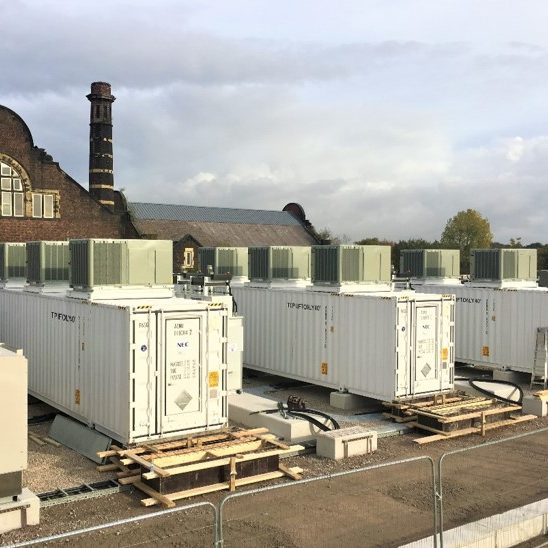- Carnegie Road BESS (Battery Energy Storage System)
- Carnegie Road in Liverpool. Merseyside.
- Lithium Ion Battery Storage for Fast Frequency Response and capable of providing Reactive Services
- 20MW / 10MWh
- 5 months
- Orsted
The Carnegie Road BESS facility is a 20MW / 10MWh Lithium Ion System for Fast Frequency Response Electrical Storage System built on a small site (0.4 hectares) at Carnegie Road in Liverpool. Cobalt Energy had a central role in delivering this facility leading the construction management, commissioning management and the Authorising Engineer.
Construction began in August 2018 and the facility was ready to energise in November 2018. New construction methods were adopted which allowed a ‘plug and play’ approach, which ensured all the site cabling could be installed ready to connect the High-Voltage equipment and battery containers as they arrived at the site.
The delivery process required careful attention to detail and really needed to engage with the Distribution Network Operator the equipment suppliers and the construction contractors to ensure that the equipment was delivered and connected on time. The site is controlled directly by National Grid under the grid balancing mechanism and all the necessary communications had to be established with the National Grid control centre in Wokingham, bridging various corporate IT security systems.
Safety was a very important aspect to the project, and Cobalt Energy had to create local electrical safety instructions for the commissioning phase of the project, and to address the issue of “working live” when working with batteries (cannot be isolated). Cobalt Energy also had to satisfy the local fire & rescue teams of the hazards of operating bulk Li-on batteries. Cobalt Energy developed the required operational procedures and training, the O&M Systems, the preventive maintenance and reactive maintenance protocols. The project was completed on time and on budget in December 2018. Cobalt Energy engineers continue to work in collaboration with the Orsted, HSE and equipment suppliers to help them understand the best practices and engineering development to reduce the risk of working live and handling batteries.


